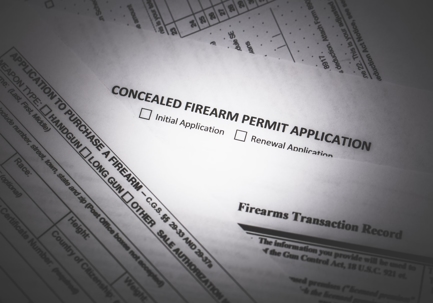One of the most common questions from Defendants in criminal cases is, what is going on with my concealed handgun permit? The answer to this question depends on several factors: where you are at in the process of obtaining a Concealed Handgun Permit, have you just applied or do you currently hold a valid permit; and what kind of crime are you charged with? The other main question we get surrounding this topic is what do you do after your permit is denied or revoked, while there is a set process for challenging this, it can often be a different experience depending on what county you reside in and where your permit is from. If you are charged with a crime and you are worried about your permit, call the criminal defense team at Jetton and Meredith today.
The Criminal Charge and where you are in the process of getting your license.
First, it is important to know that not all criminal charges will result in the denial or revocation of your permit. Another important factor to know is that you do not have to be convicted in order for your permit to be denied or revoked. N.C.G.S. 14-415.12 states that if you are free on bond or personal recognizance pending trial, appeal, or sentencing for a crime that would disqualify them from obtaining a concealed handgun permit can be the cause for you to be denied, or have your license revoked. Finally, it is important to know that even if you are granted a PJC, the sheriff is required to treat that as a true conviction for the purposes of a concealed handgun permit.
There are two main classes of criminal charges that we examine when talking about your concealed permit; those that are a permanent bar, and those that are a temporary bar.
The first and most obvious permanent bar is a felony conviction. Furthermore, your application must be denied if you are under indictment for or a finding of probable cause exists for a felony that is currently pending. Other permanent bars are convictions for misdemeanors involving violence and assaults under Chapter 14 that are not specifically listed as temporary bans. Some examples are misdemeanor assault with a deadly weapon inflicting serious injury; assault on a female; assault on a child under the age of 12; stalking; child abuse; DVPO violation; any crime that the federal law 18 U.S.C. 922 would consider a misdemeanor crime of domestic violence, generally any crime of violence perpetrated against a domestic partner; and more.
The second category of criminal convictions is those that are not a permanent bar but a temporary one. The time period for this temporary ban is three (3) years. This means that three years must have passed from the date of your conviction, being granted a PJC, or receiving a suspended sentence before you submit your application. Some examples of crimes that carry this three-year ban are; DWI, simple assault, communicating threats, impersonating a police officer, and more.
Now, once you have been charged with a crime, or convicted of a crime, the sheriff’s department who issued your permit will be notified by the court system. If you have only applied for your license then you will get denied. However, if you already have a valid permit, the sheriff will send you a letter revoking your permit putting you on notice of the revocation and requiring you to turn the permit in. It is vitally important that once you get this letter, you tell your attorney that you comply with the request to turn the permit in.
My Permit has been denied or revoked, what do I do?
First, you need to make sure that you give the letter, notifying you of the sheriff’s decision to deny or revoke your permit to your attorney as quickly as possible. The reason you need to be timely with this is that the statutes place time limits on your ability to challenge the findings of the sheriff. The other reason you want to speak to a skilled and knowledgeable attorney about the matter is that you have to challenge the finding in writing and that writing will be used as part of your response and the process moving forward.
If you already possess a valid permit and it is revoked, the first step is a hearing in front of the sheriff’s department. This panel includes members of the staff at the sheriff’s department and a civilian who is not employed by the sheriff’s department. They decide whether the revocation of your permit was appropriate. This step is usually not a good opportunity to be heard because you are asking the sheriff’s office to overturn themselves. Once they make a decision, you are allowed to appeal the decision to the district court in the county in which your permit was revoked. Here your lawyer will be able to advocate to a judge why your permit should not be revoked.
If you do not already possess a permit, and your application is denied, you do not have to do the intermediate step of a hearing in front of the sheriff’s department panel, instead you can appeal that decision directly to the court. Similar to the appeal of the revocation, this is your lawyer’s opportunity to argue to a court that you should be given a permit.
Being charged or convicted of a crime when you possess a concealed carry permit or are in the process of getting one can be a complicated event. If you find yourself in this position it is important to call a skilled and knowledgeable attorney as soon as possible. If you have any questions call the attorneys at Jetton and Meredith today!

